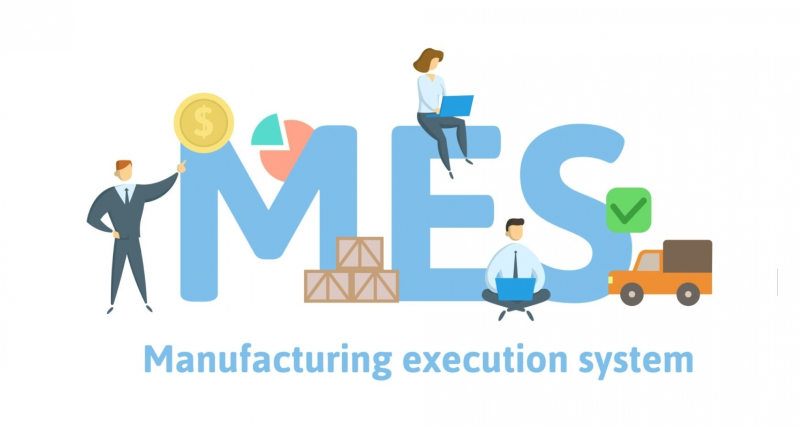Manufacturing Executions System Software Functions
Manufacturing execution system (MES) is software used in the manufacturing industry to track, control, and monitor the production process. The MES software works all around the operating production areas.
The system carries out crucial functions that benefited the industry and they are:
- Data collection
The software gathers data both manually and automatically. - Material tracking
MES software tracks the location of each material at every step, to adhere to the regulations. - Labor management
Data tracking will help to highlight the best features and qualities of the employees and utilize them in the fittest area. - Performance analysis
The system analyzes the performance of the entire process, every step of the way to ensure things run smoothly. - Quality control
Controlling the product quality will be easier with the real-time data from this software - Maintenance management
A smooth production flow happens when no major breakdown occurs, which can be prevented with the perfect maintenance management carried out by this software.
Top Advantages of Manufacturing Execution System Software Application
- Excellence performance
MES software recorded real-time data of different aspects including production level, downtime, and maintenance. The data is used to evaluate the entire process for more optimized output. - Cost efficiency
The MES software enables cost efficiency in different areas. Real-time data and real-time process control prevents over-production or a production process that didn’t meet the specifications; which then reduces material cost. Automation of data collection improves accuracy, saves man-hours, and reduces the cost of collecting data across different system manually. Automated monitoring of energy use of all plant equipment is part of the MES software. It helps to identify any faults that should be dealt with immediately, thus optimizing energy consumption and reducing electricity bills. - Less downtime
Constant monitoring helps the management to identify any faults and deviations from performance targets and find the main cause of this issue. - Compliance with the regulation
Real-time data from the software enables management to create better documentation and reports, and ensures that everything complies with the regulation. - Achieve sustainable goals
The MES software enables the manufacturer to gain control of energy resources. This starts with understanding the energy used – that includes water, gas, air, and electricity – during the production time. The data allow the manufacturer to find any fault, inconsistencies, or leak that should be dealt with right away. - Improve product consistency
Real-time data check from the system helps in increasing product and process quality and minimizing human error during the process. - Empowering the employee
The employee can use the system to track the production process globally, thus improving productivity and work efficiency. - Improving response time and customer service
The system enables the customer to provide real-time feedback. From that, the manufacturer can address the challenge of the production process to optimize and improve customer service.

Integrating MES Software with Other Business Systems
A seamless integration of the Manufacturing Execution System (MES) with other business systems enhances overall business operations and supports informed decision-making. MES software can efficiently interact with Enterprise Resource Planning (ERP) systems, providing comprehensive data exchange between the shop floor and the top floor. This integration allows for real-time visibility into production processes, ensuring accurate planning, scheduling, and execution. In addition, MES software can also collaborate with Quality Management Systems (QMS) to ensure product quality and compliance are maintained throughout the production cycle. When MES is integrated with these systems, businesses experience enhanced productivity, improved operational efficiency, and increased profitability.
Future Trends in Manufacturing Execution Systems
With the ever-evolving technological landscape, the future of Manufacturing Execution Systems (MES) is promising, with several emerging trends that will further optimize manufacturing operations. Artificial Intelligence (AI) and Machine Learning (ML) are increasingly being incorporated into MES software to provide predictive maintenance, quality forecasting, and intelligent process optimization. The use of augmented reality (AR) and virtual reality (VR) in MES is enhancing training processes, aiding in equipment maintenance, and providing real-time data visualization. Furthermore, the trend towards cloud-based MES solutions is on the rise due to the flexibility, scalability, and cost-effectiveness these platforms offer. These innovations not only enhance the features of MES software but also ensure that manufacturing operations are more streamlined, efficient, and agile in responding to market demands. These trends indicate a future where MES solutions are integral to smart manufacturing, driving innovation, and operational excellence in the industry.
Manufacturing Execution System in Indonesia
The MES software is part of the Internet of Things (IoT). IoT and other smart tools and technology such as edge computing are used to optimize productivity, cut down maintenance costs, and increase automation in the industry. Indonesia use these technologies to embrace the industry 4.0 era.
The market for operational technology including IoT, MES, industrial sensors, and other smart tools is increasing greatly, especially in Asia Pacific countries including Indonesia.
In the near future, Subang Smartpolitan as the pioneer of integrated industrial township development in Indonesia, believes that its existence will support the manufacturing execution system in Indonesia. With the “smart & sustainable” concept, Subang Smartpolitan leveraged IoT in the development of their infrastructure from the beginning, which will be beneficial for their tenants and/or manufacturing industries.

